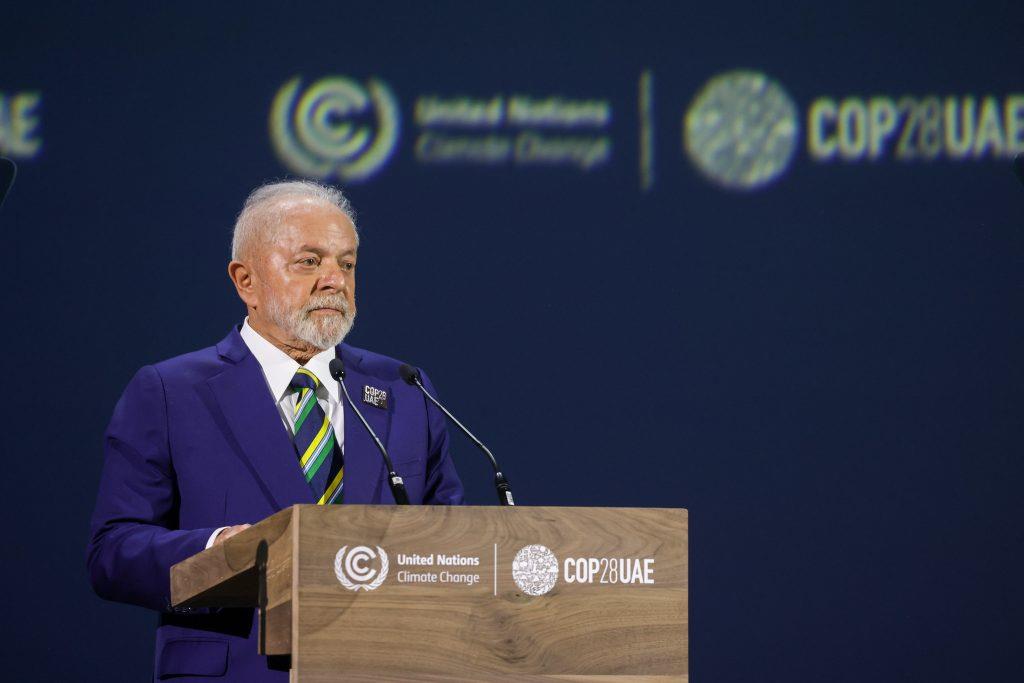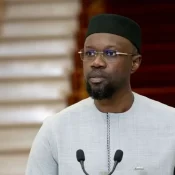
Lula tells the leaders of the G20 to speed up their work on net-zero climate goals
Leaders of the Group of 20 major economies were pushed by Brazilian President Luiz Inacio Lula da Silva on Tuesday to expedite their national climate targets, aiming to achieve net zero climate emissions five to ten years ahead of schedule.
Lula proposed that nations advance their goals to achieve carbon neutrality by 2040 or 2045, rather than 2050 as Brazil and many others have promised, during the opening of the final session of the G20 meeting in Rio de Janeiro.
“We have to do more and better,” Lula stated, adding that as climate calamities like droughts and floods become more common and severe, this year is probably going to be the warmest on record. He went on to say, “There is no time to lose,”
Before Donald Trump retakes the president in January, when he intends to reverse U.S. policy on global warming and apparently withdraw from the historic Paris Agreement, world leaders are working to strengthen a worldwide response to climate change.
Given that they are responsible for almost three-quarters of climate-warming emissions and 85% of the global economy, G20 countries are viewed as being crucial in determining how the world responds to climate change.
In a joint statement on Monday, the G20 leaders urged “rapidly and substantially increasing climate finance from billions to trillions from all sources” in order to combat global warming.
As the primary source of contention in the climate talks, they also encouraged COP29 negotiators to agree on a new financial target for the amount of money wealthy countries must provide to poorer developing countries in climate finance.
Rich nations have been pressuring richer developing countries, like China and big oil producers in the Middle East, to contribute to climate finance.
Lula urged developing nations to expand their climate targets to address all emissions that cause global warming, not only from specific industries or gasses, when leaders of the G20 shifted their conversation to the environment on Tuesday.
Developing nations must have “enough firepower and access to capital,” U.S. President Joe Biden said the audience, in order to slow down climate change and shield their nations from its repercussions. These funds must enter their economies and allow nations that are heavily indebted to breathe.
Biden remarked, “History is watching us,” “I implore us to continue and maintain our faith. The biggest existential threat to humanity is this.
COP29 CONVERSATIONS
Lula attacked wealthy nations for not fulfilling their pledge to provide $100 billion a year in climate funding to underdeveloped nations by 2020.
At the United Nations COP29 climate summit in Baku, Azerbaijan, Lula pointed out that negotiators are working to establish a new worldwide target for the amount of aid that wealthier nations should give to underdeveloped countries. According to economists, the target should be at least $1 trillion a year.
The discussions, which are scheduled to end on Friday, have stalled as the poor world contends that the wealthy countries most accountable for climate change must make amends, while developed nations demand that additional nations contribute to the objective.
In their statement on Monday, the G20 leaders stressed that countries needed to end the financial standoff, but they did not provide specific recommendations for how to do so.
“The G20 leaders have made it very clear to their negotiators at COP29: don’t abandon Baku without achieving a new financing objective. In response to the G20 communique, U.N. climate director Simon Stiell said in a statement that “this is in every country’s clear interest.”
The G20 declaration did not go far enough on climate finance, according to some environmentalists.
“The G20’s influence is essential for bridging the divides between developed and developing nations, and this vagueness of the G20 declaration risks undermining trust in the negotiations,” stated Oscar Soria, a longtime activist and the head of the environmental research tank The Common Initiative.
The summit’s lead negotiator, Yalchin Rafiyev of Azerbaijan, stated that climate negotiators want to have a complete draft of a deal for the financial target by Wednesday evening.
According to Rafiyev, “We have stepped up the pace,” “The outcome will only be as good as parties’ commitment to help us build solutions.”
The G20 also agreed to reach a legally binding agreement by the end of 2024 to reduce plastic pollution; negotiations will resume next week to finalize a pact that has been in the works for two years.
All Categories
Recent Posts
Tags
+13162306000
zoneyetu@yahoo.com



